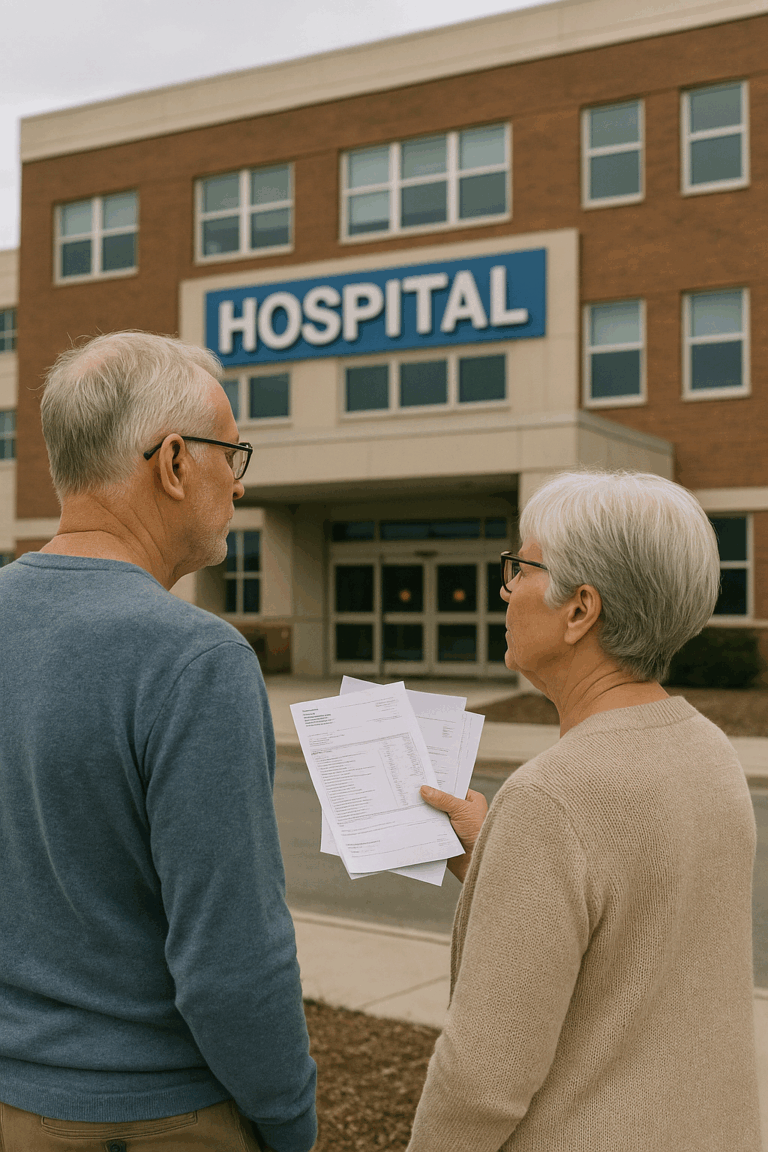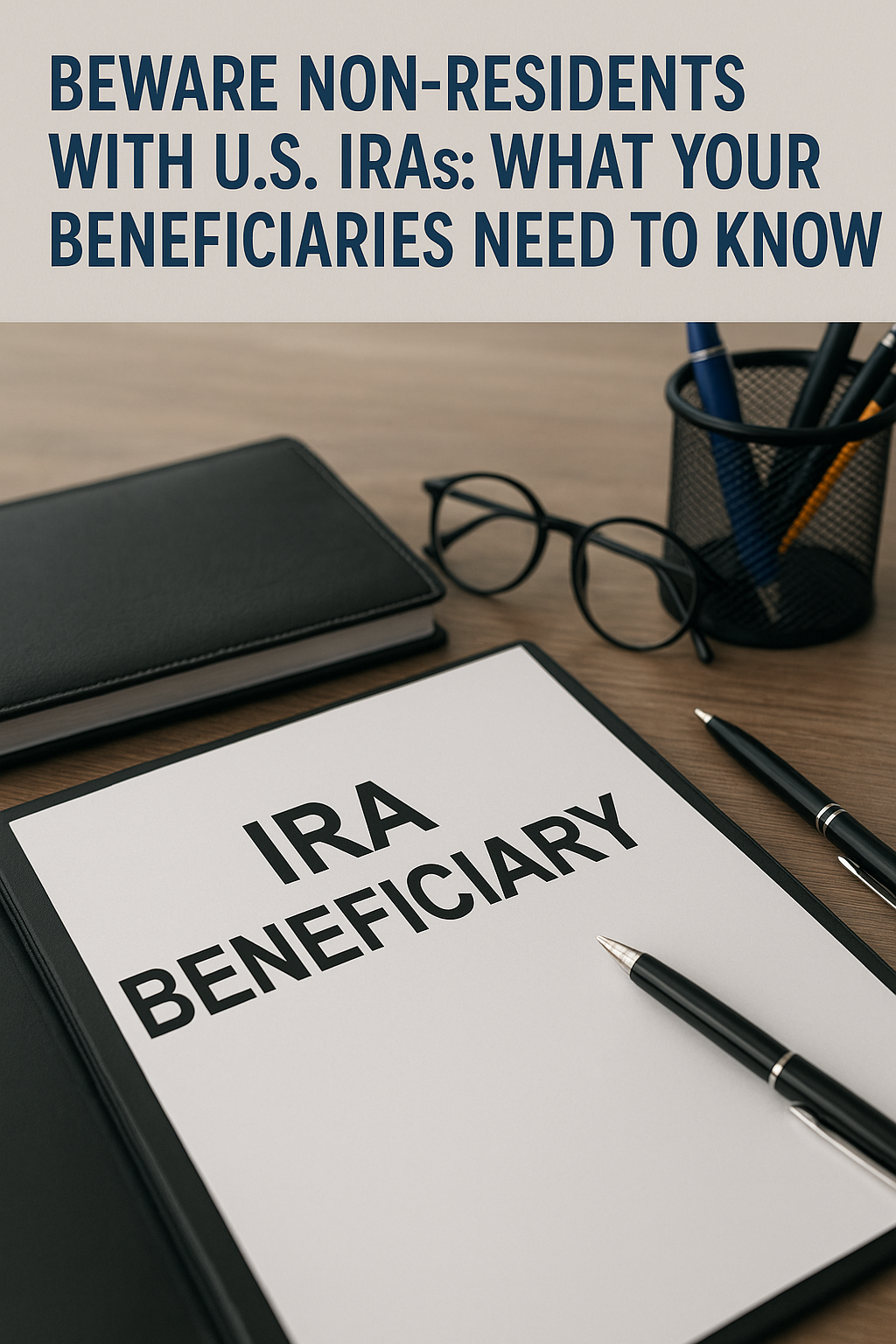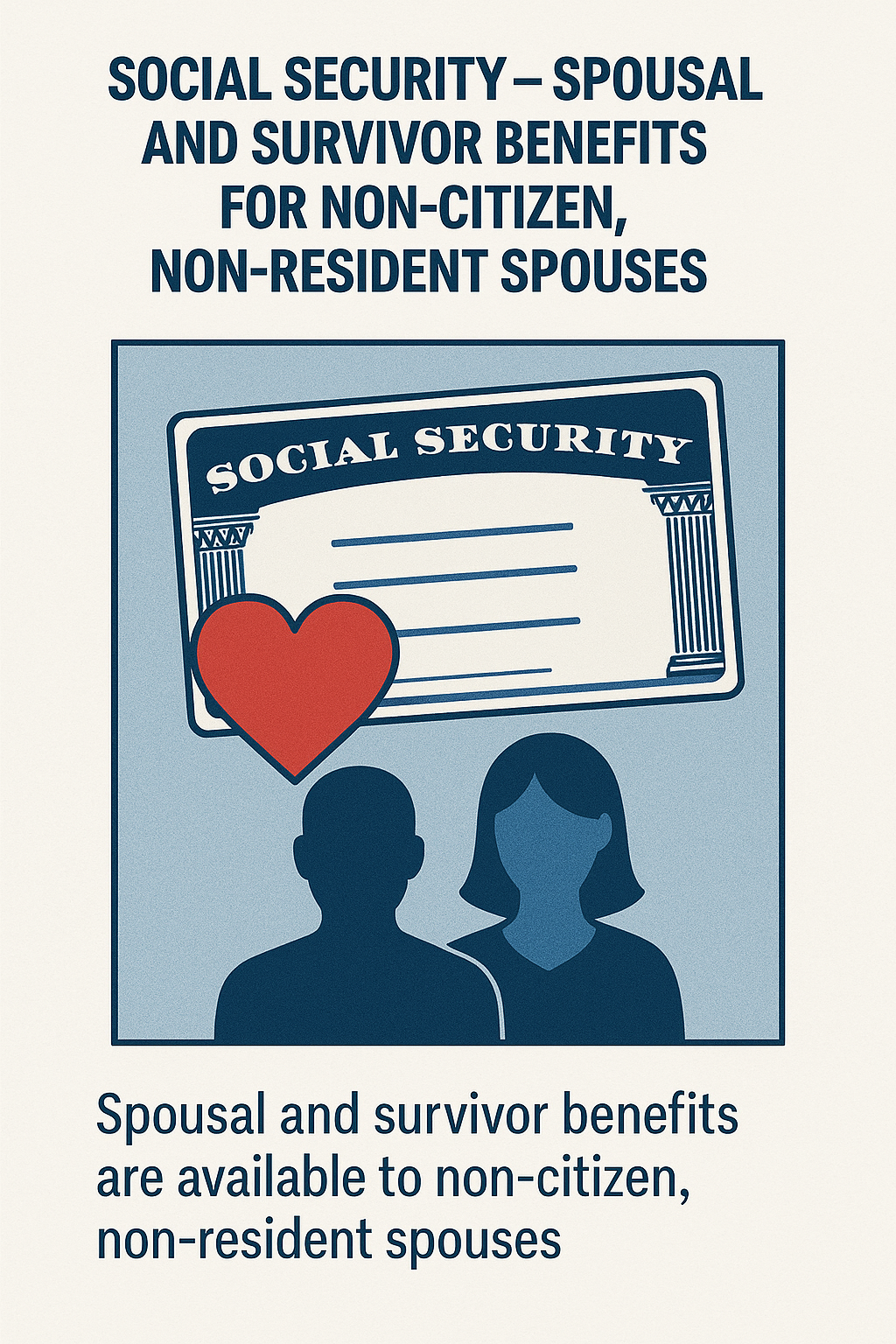If you’re a U.S. citizen married to a non-resident, non-citizen spouse, you might wonder about their eligibility for Social Security spousal benefits. The answer is nuanced, depending on various factors like residency history, international agreements, and specific Social Security rules. Here’s a comprehensive guide to help you navigate this complex topic.
Understanding Social Security Spousal Benefits
Social Security spousal benefits allow a spouse to receive up to 50% of the primary earner’s benefit amount. This provision is designed to support spouses who may have limited or no work history under the U.S. Social Security system.
Basic Eligibility Criteria:
- Primary Earner’s Work History: The U.S. citizen spouse must have earned at least 40 work credits, equivalent to 10 years of work, contributing to Social Security.
- Age Requirements: Both spouses must be at least 62 years old. Exceptions apply if caring for a child under 16 or a disabled child.
- Benefit Amount: The non-citizen spouse is entitled to up to 50% of the U.S. citizen spouse’s full retirement age (FRA) benefit. If the non-citizen spouse has their own work history, they will receive the higher benefit between their own and the spousal benefit. If the spousal benefit is higher, they will technically receive their own benefit with a portion of the spousal benefit added so that their total combined benefit is 50% of the primary earner’s FRA benefit amount.
Additional Requirements for Non-Resident, Non-Citizen Spouses
For non-citizen spouses residing outside the U.S., additional criteria must be met to receive Social Security benefits:
- Five-Year U.S. Residency Rule
The non-citizen spouse must have lived in the U.S. for at least five years while married to the U.S. citizen spouse. These years don’t need to be consecutive. This rule establishes a significant connection to the U.S. Interestingly; the five years do not need to be with the same spouse.
- Totalization Agreements
The non-citizen spouse must be a citizen or resident of a country that has a Totalization Agreement with the U.S., with a few exceptions. These agreements coordinate Social Security coverage and benefits between countries. As of January 2025, the U.S. has Totalization Agreements with 30 countries.
Restrictions Based on Country of Residence
While Social Security benefits can be received in many countries, there are exceptions:
- No Payments Allowed: Benefits cannot be paid to individuals residing in Cuba or North Korea.
- Restricted Payments: Social Security is generally unable to make payments to individuals in Azerbaijan, Belarus, Kazakhstan, Kyrgyzstan, Moldova, Tajikistan, Turkmenistan, and Uzbekistan. However, exceptions may apply.
If a beneficiary moves out of these restricted countries, they may claim withheld payments, except for those withheld during residence in Cuba or North Korea.
Survivor Benefits for Non-Citizen Spouses
In the event of the U.S. citizen spouse’s death, the non-citizen spouse may be eligible for survivor benefits:
- Marriage Duration: The couple must have been married for at least nine months. This requirement is waived if the death occurred during active military service.
- Age Requirements: The surviving spouse can claim benefits starting at age 60, or age 50 if disabled. If caring for a child under 16 or a disabled child, there is no age requirement.
- Benefit Amount: Survivor benefits can be up to 100% of the deceased spouse’s benefit amount, depending on when the survivor begins claiming. Survivor and spousal benefits are reduced like Social Security retirement benefits if taken before FRA, but increased benefits are not available for delaying past FRA.
Application Process for Non-Citizen Spouses
Non-citizen spouses residing abroad can apply for Social Security benefits through the nearest U.S. Embassy or Federal Benefits Unit. Required documentation includes:
- Proof of Marriage: Marriage certificate.
- Identification: Valid identification documents.
- Residency Evidence: Documentation proving U.S. residency, if applicable.
It’s advisable to consult with a tax professional experienced in international Social Security matters to navigate the application process effectively.
While non-resident, non-citizen spouses can qualify for U.S. Social Security spousal and survivor benefits, eligibility depends on specific criteria, including residency history and international agreements. Understanding these requirements is crucial to ensure your spouse receives the benefits they’re entitled to.
For personalized guidance, consider consulting with a financial advisor or tax professional specializing in international retirement planning. At 49th Parallel Wealth Management, we are your cross-border retirement experts! Schedule time with us if you will be crossing the 49th parallel.




